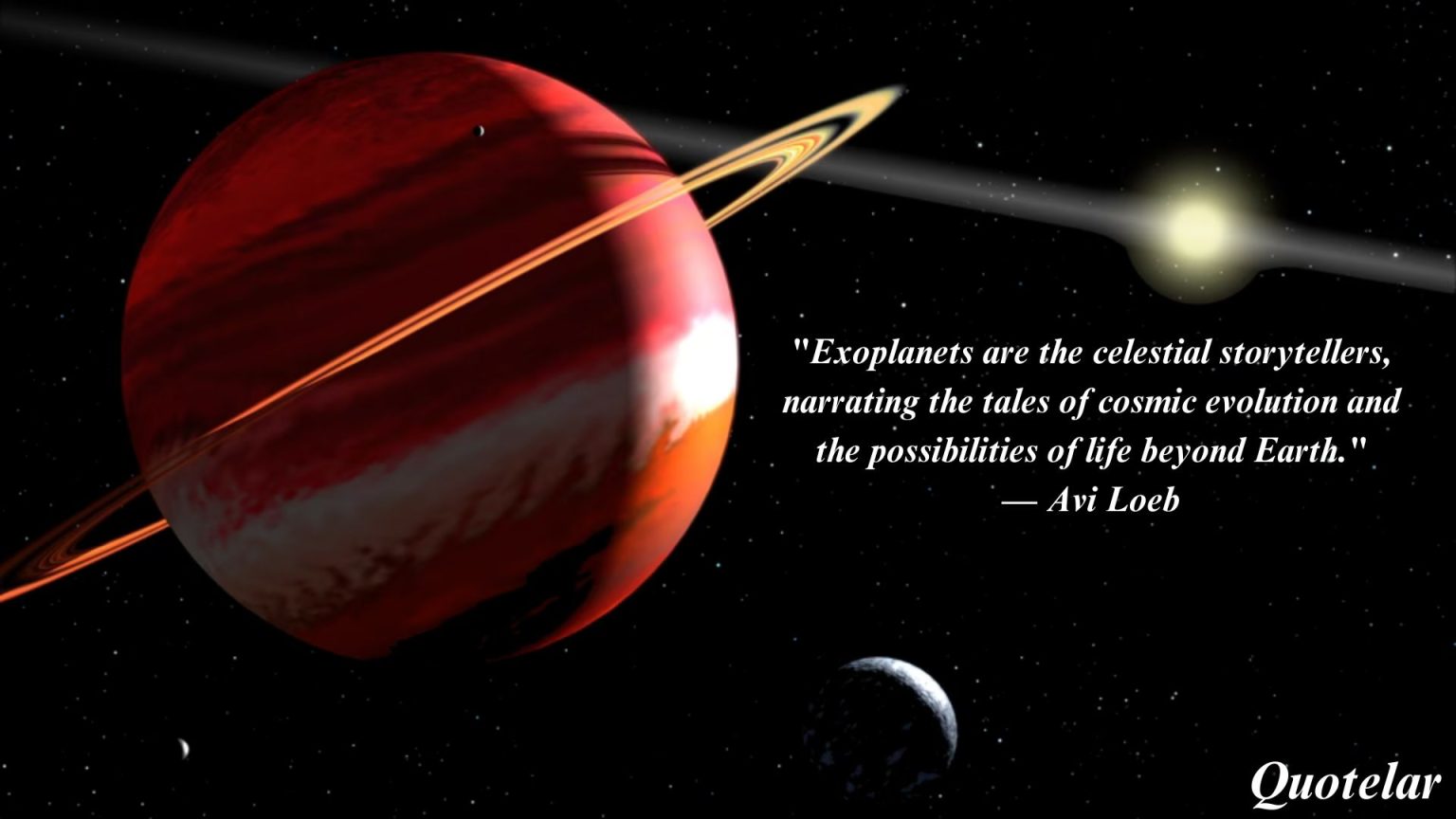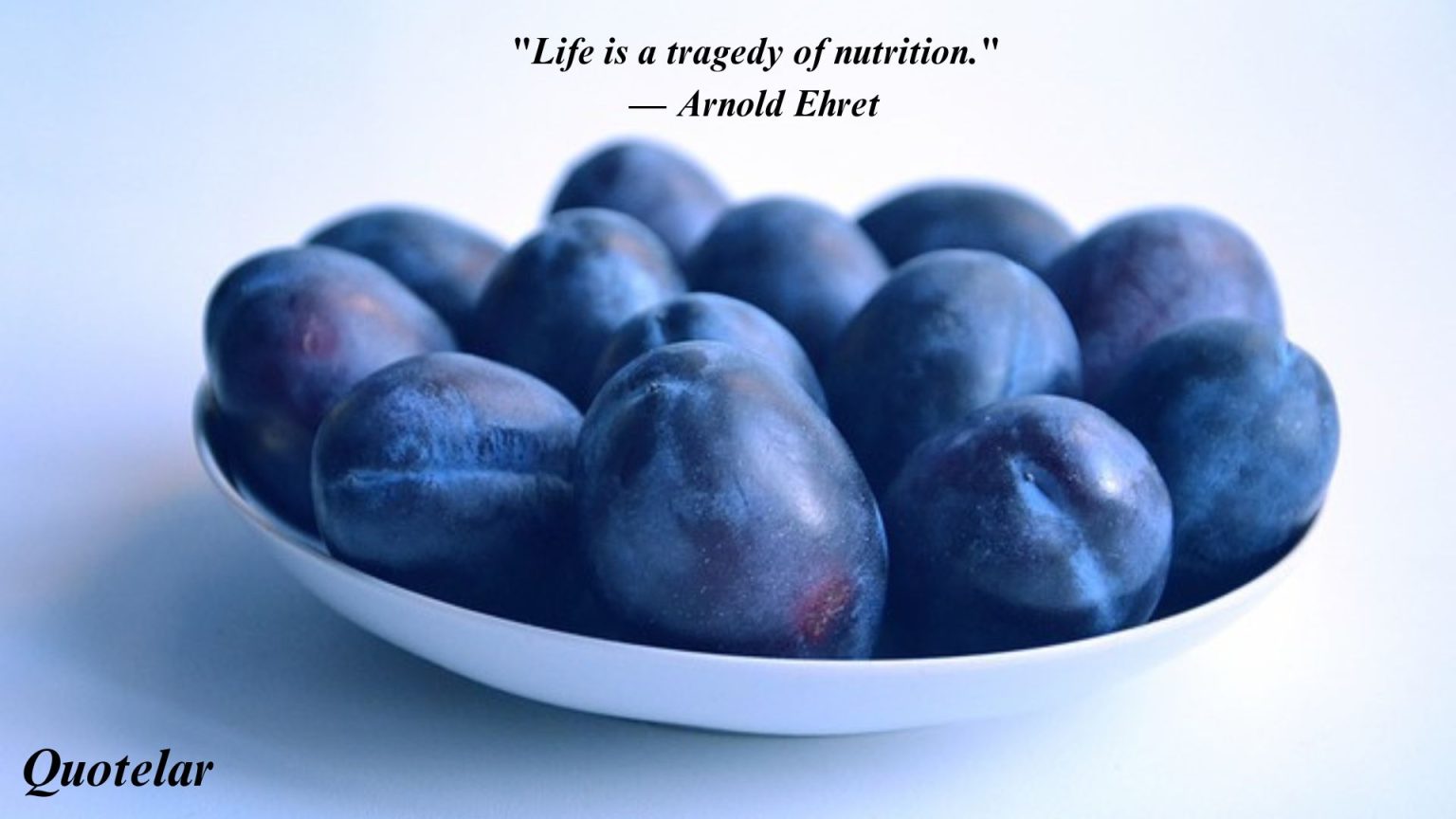“Exoplanets” refer to planets that orbit stars outside of our solar system. These planets are not part of the Sun’s family of planets but instead orbit other stars in our galaxy, the Milky Way. Exoplanets can vary significantly in size, composition, and other characteristics, and their discovery has expanded our understanding of planetary systems beyond our own.
Exoplanets Quotes
1. “The discovery of exoplanets is like finding cosmic cousins. Each one reveals more about the vast diversity of worlds beyond our solar system.”
— Neil deGrasse Tyson
2. “Exoplanets are the breadcrumbs leading us to the feast of understanding the universe.”
— Sara Seager
3. “Studying exoplanets is like solving a cosmic puzzle where each new discovery adds a piece to the picture of our place in the cosmos.”
— Michio Kaku
4. “Exoplanets are the celestial storytellers, narrating the tales of cosmic evolution and the possibilities of life beyond Earth.”
— Avi Loeb
5. “Every exoplanet is a journey waiting to happen, a mystery waiting to be unraveled, and a potential home for life waiting to be discovered.”
— Jill Tarter
6. “Exoplanets are the universe’s hidden gems, waiting for us to uncover their secrets and unlock the mysteries of distant worlds.”
— Natalie Batalha
7. “The study of exoplanets reminds us of the boundless creativity of the cosmos, where every star may host a unique planetary system, waiting to be explored.”
— Dimitar Sasselov
8. “Exoplanets are the cosmic laboratories where we test our understanding of planetary formation, evolution, and the potential for habitability.”
— Geoff Marcy
9. “Each exoplanet discovered is a testament to human curiosity and ingenuity, expanding the horizons of our knowledge and imagination.”
— Lisa Kaltenegger
10. “In the vast tapestry of the cosmos, exoplanets are the threads that weave the story of planetary diversity and the potential for life beyond our solar system.”
— Sara Seager
11. “There are often evolutionary parallels on the different worlds because creation tends to be economical.”
— Julian May, Orion Arm
12. “People ask what will happen if Mars One fails. There will be Mars Two, Mars Three, there will be Gliese 581 One, Proxima Centauri b One etc. If a project opens the path for other projects, it means that it has already triumphed!”
— Mehmet Murat ildan
13. “It is triste to contemplate the winding down of the Universe into a cold, dark, lonely place, but we are a young species in a young Universe, with vast reaches of time before us. It is certainly true that there are countless worlds out there that could support life as we know it, and probably countless more that could support life as we don’t know it. It may be that the Universe is teeming with life waiting to make our acquaintance. Or, we may well be the first ones in our galaxy to make the leap to sentience. The vast distance between stars poses a severe barrier to individuals or even societies making the journey. Protoplasm is just too fragile and short-lived a medium to be up to the task of such voyaging. However, at a tenth the speed of light, the whole galaxy can be traversed in a million years. That’s a long time for protoplasm, but it is not a stretch to think of the data that makes us what we are—embodied perhaps in silicon or some other sturdy information-bearing material and reconstituted at destination—spreading throughout the galaxy, hopping from planet to planet along the way like Pacific Islanders in their canoes. If life—or complex life—is rare, it may well be our destiny to seed the Universe with an expanding wave of consciousness. But it is to be hoped that we will leave abundant worlds alone to develop their own destinies. There are worlds enough, and time.”
— Raymond T. Pierrehumbert, Planetary Systems: A Very Short Introduction








